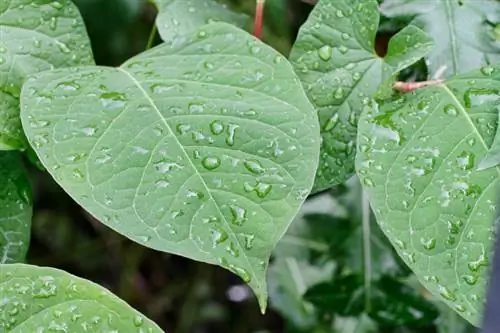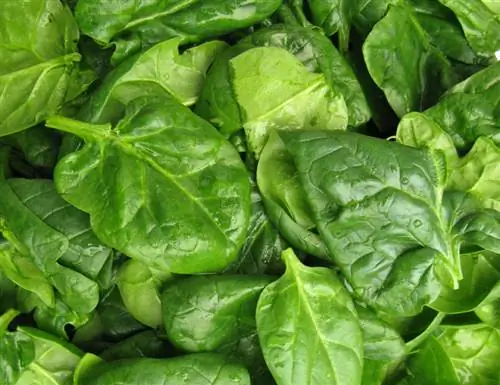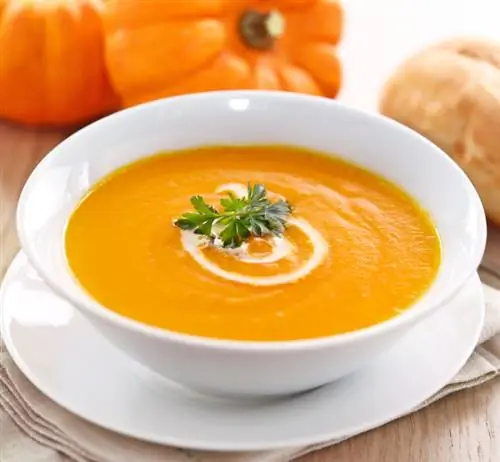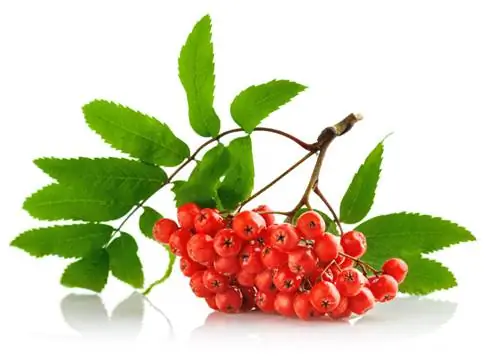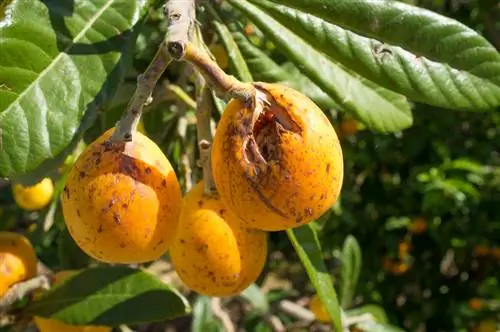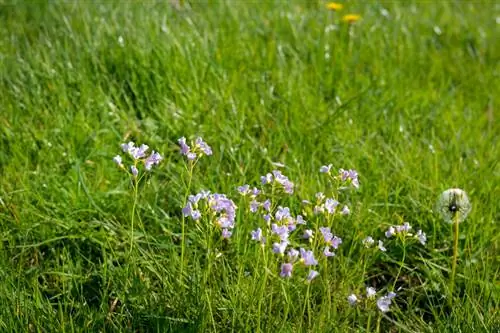- Author admin [email protected].
- Public 2023-12-16 16:46.
- Last modified 2025-01-23 11:20.
Japanese knotweed has long since become independent from home gardens and has proven to be a real pest that is difficult to control. What is little known, however, is that parts of the perennial are edible. Young stems and leaves are prepared like vegetables.
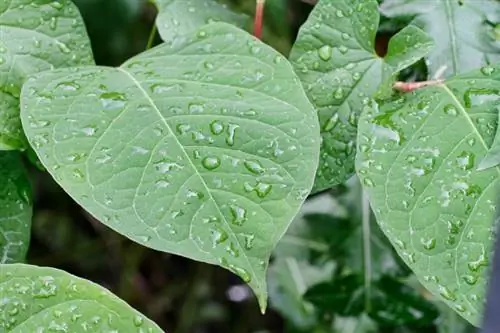
Is Japanese knotweed poisonous?
Japanese knotweed is not poisonous, but edible. The young shoots in particular can be eaten, but they contain oxalic acid, which can cause stomach upset in sensitive people. Excessive intake should be avoided.
Not poisonous, but edible
Contrary to popular belief, Japanese knotweed is in no way poisonous - neither to humans nor to animals. On the contrary, the young shoots in particular are edible and can be prepared in a variety of ways. However, like other types of knotweed, including rhubarb, they contain oxalic acid, which can cause stomach problems in sensitive people. People with rheumatism, arthritis and young children should also not consume excessive amounts.
Using Japanese Knotweed
The young, crunchy shoots can be prepared like asparagus or like the related rhubarb. Due to the high levels of oxalic acid, Japanese knotweed tastes very sour.
Tips & Tricks
It is not recommended to plant Japanese knotweed in your own garden. The risk of the plant spreading quickly and penetrating natural areas is too great.

